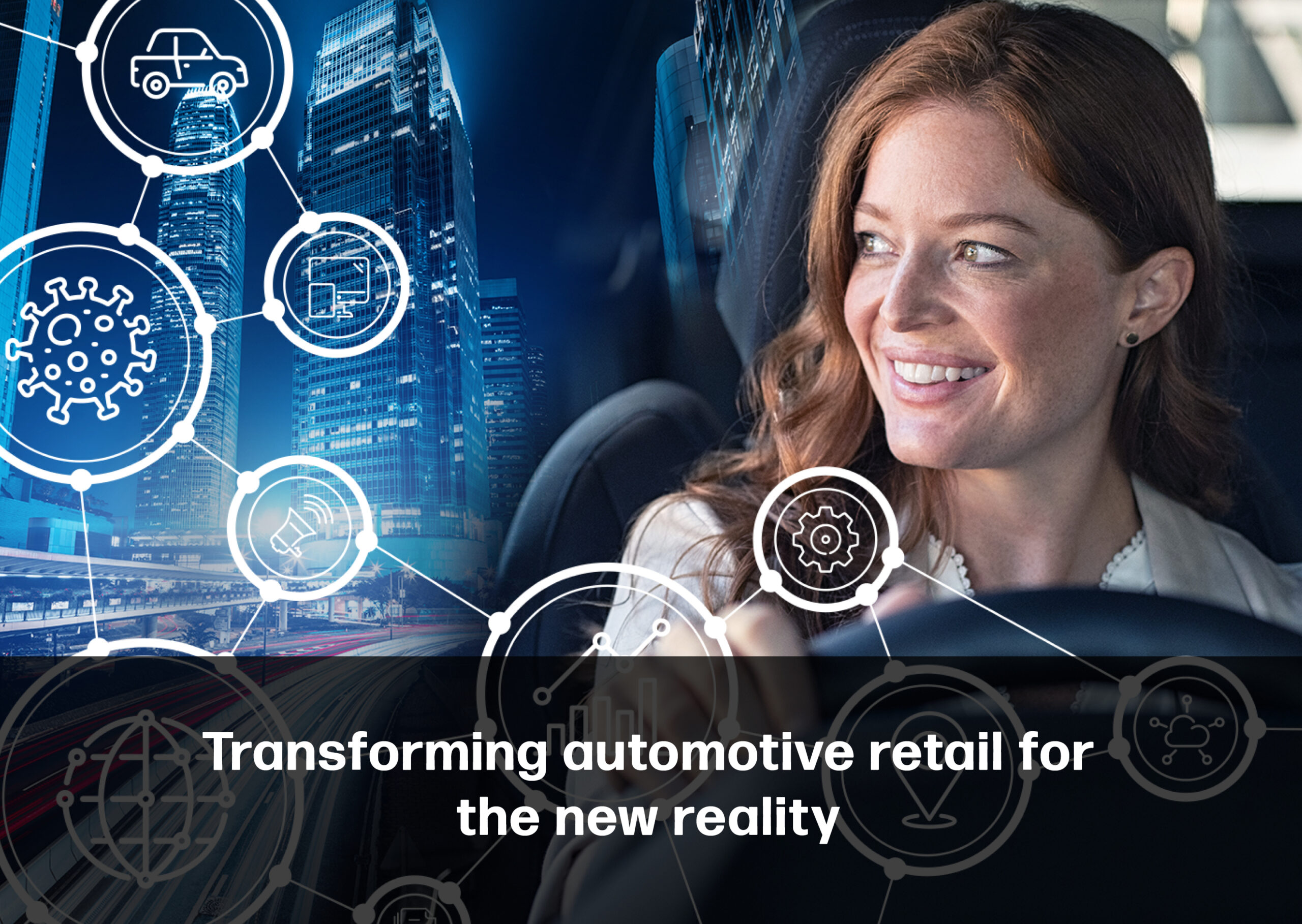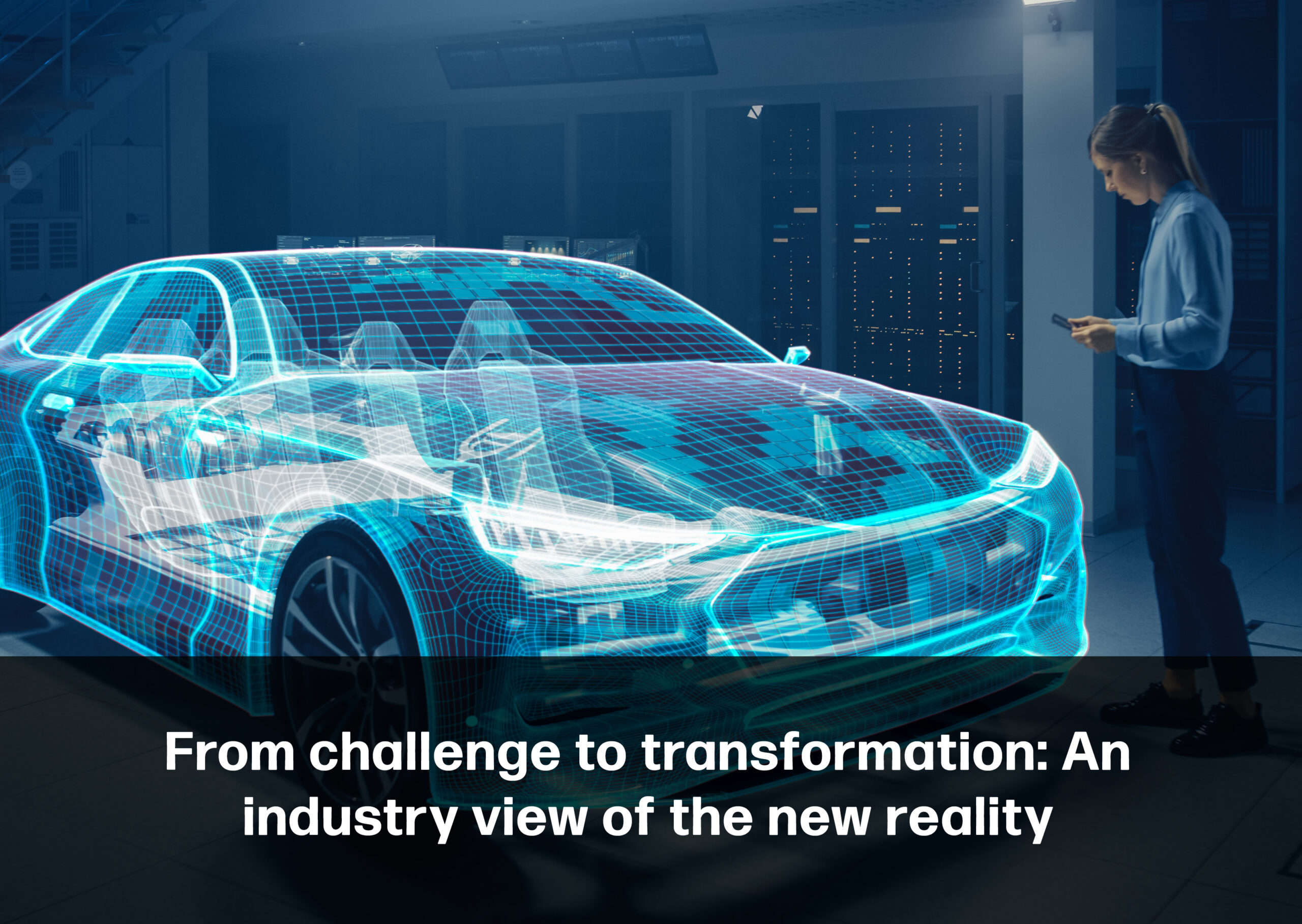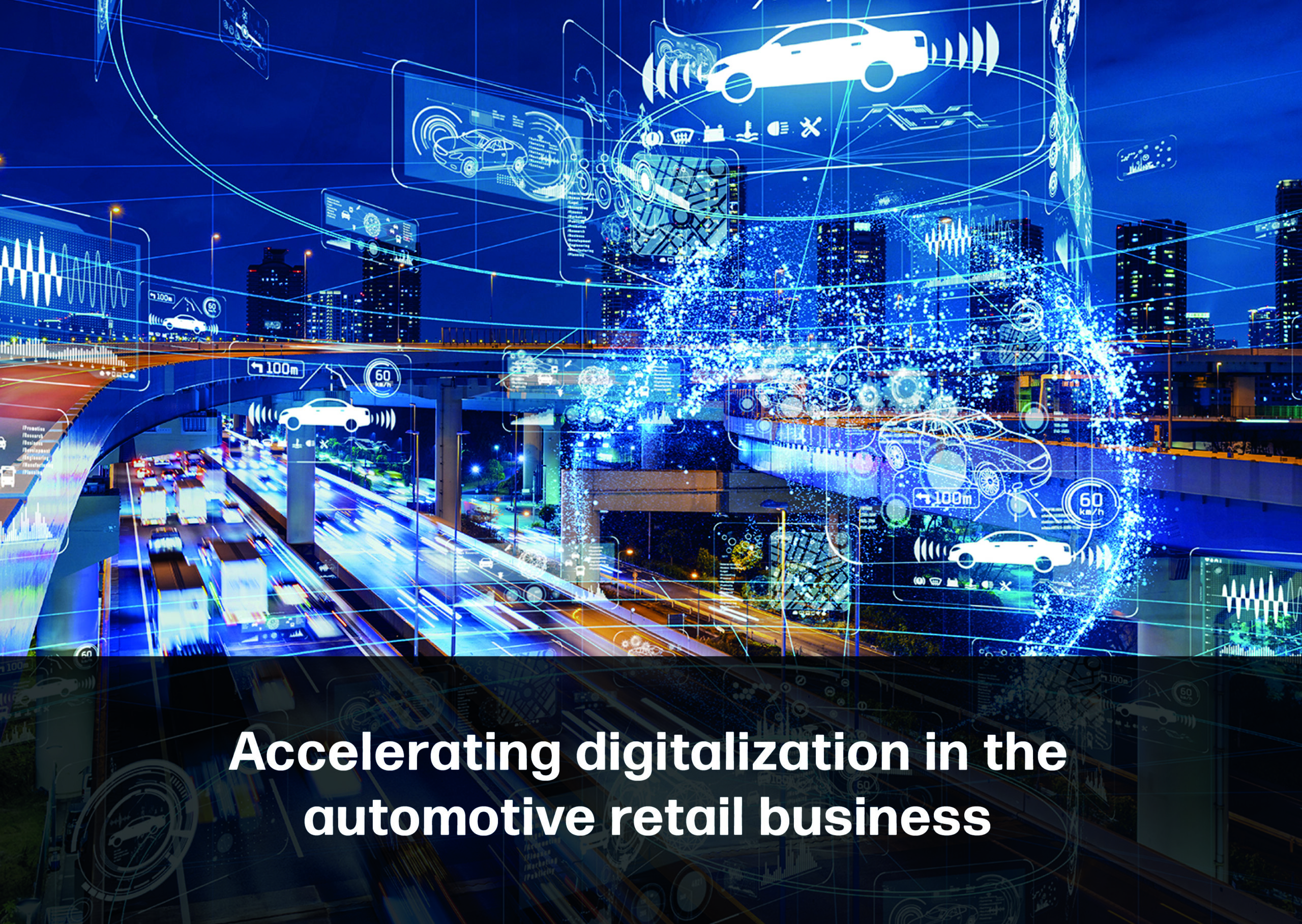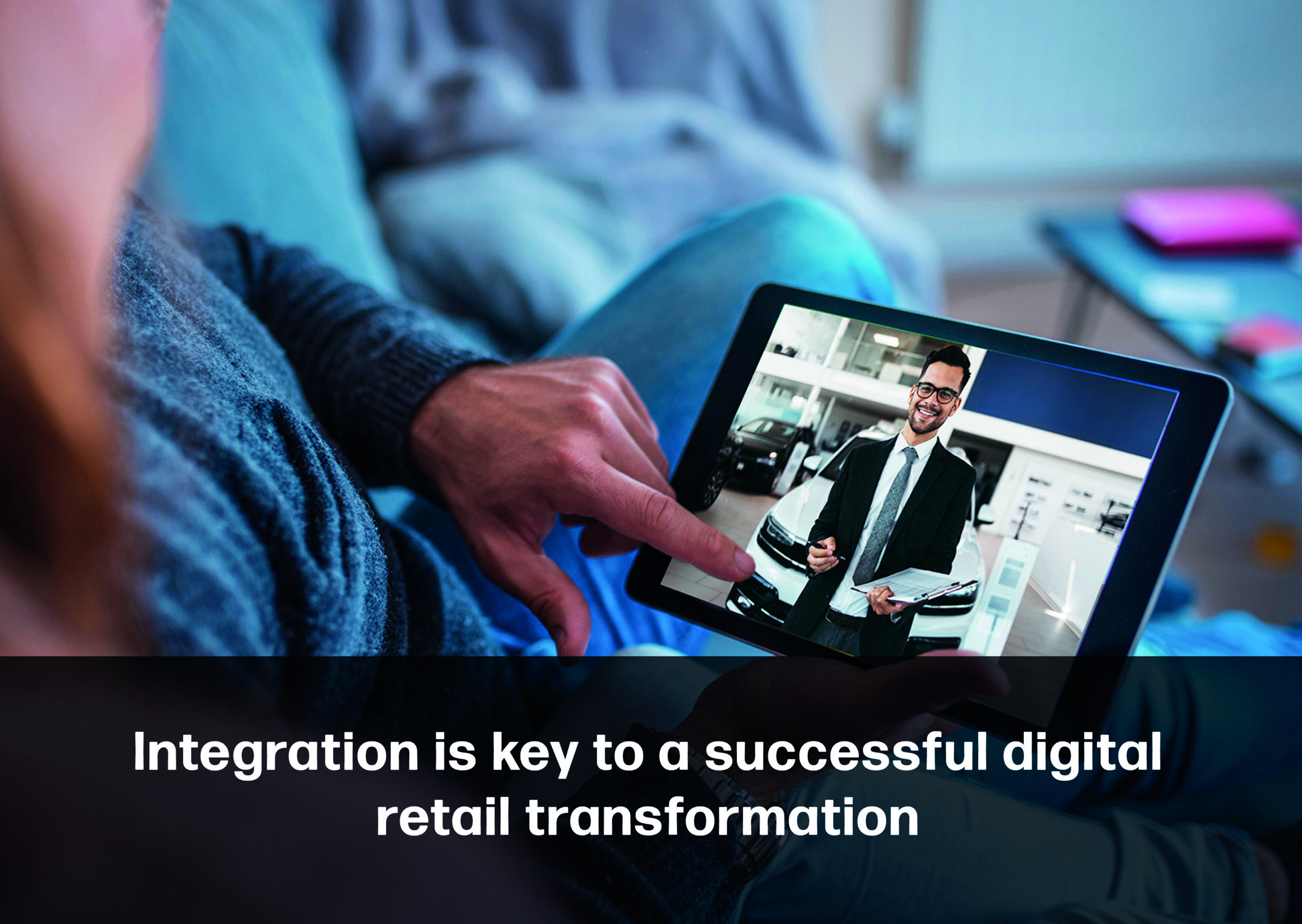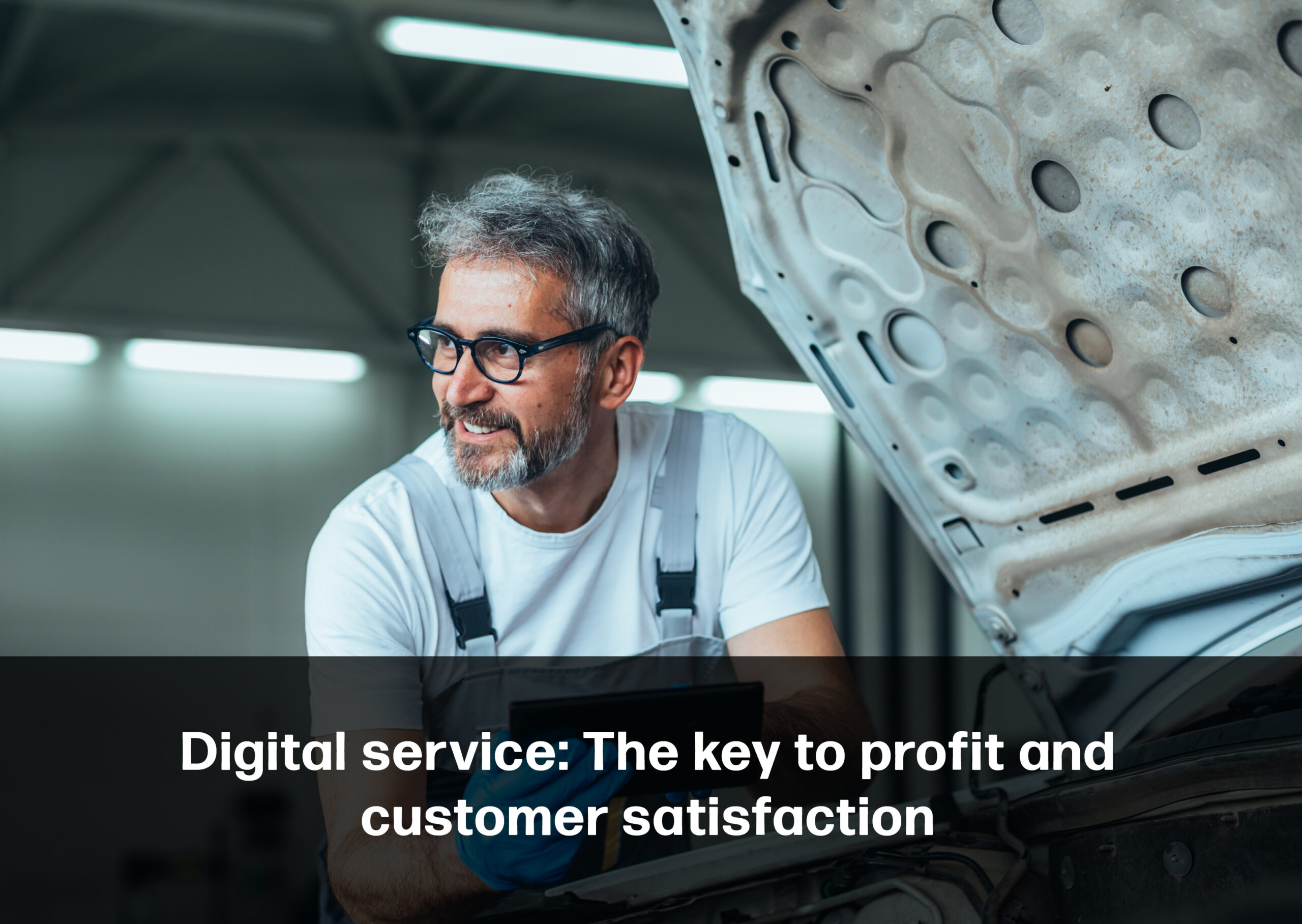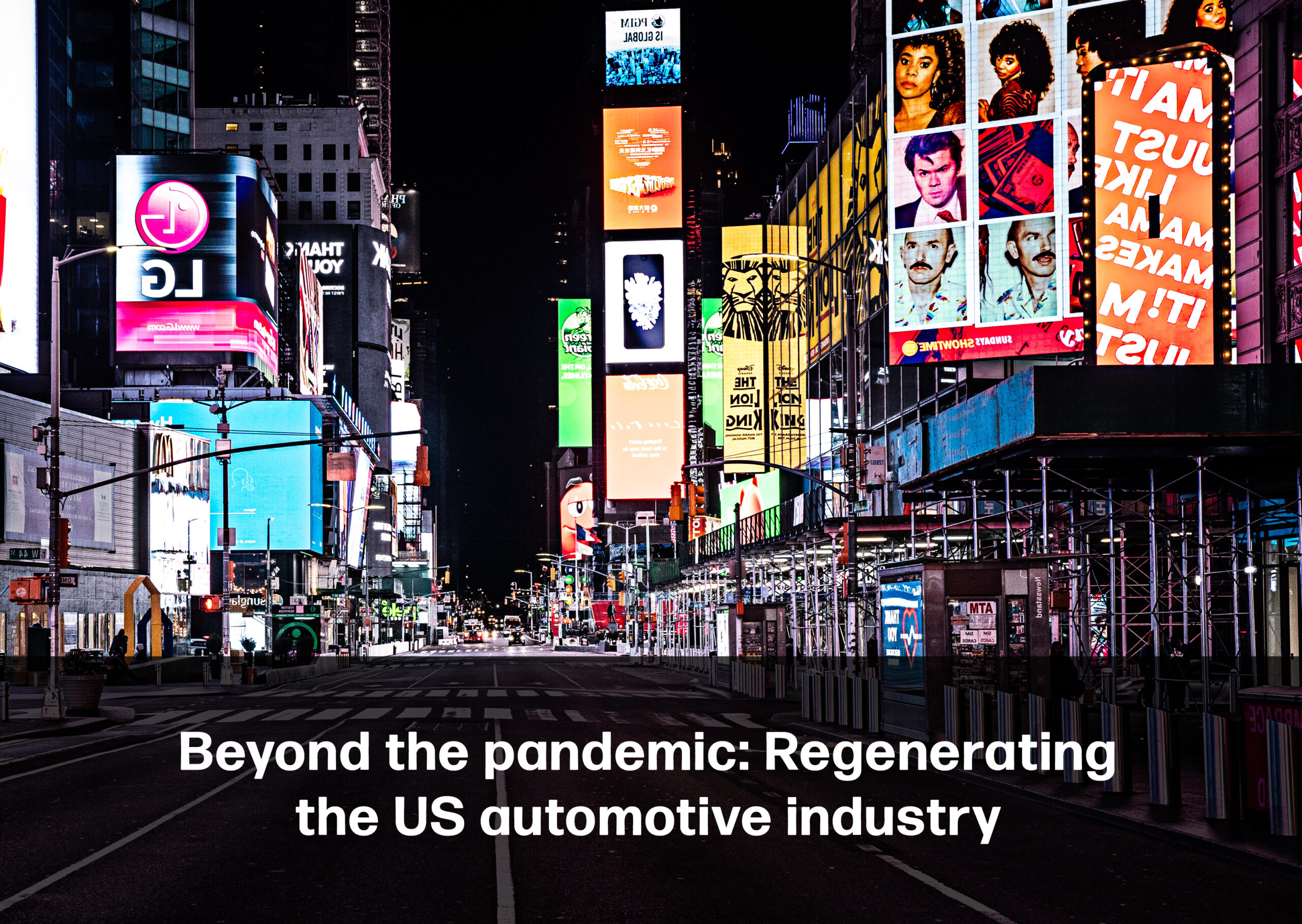Table of contents
The recovery of the European automotive industry
Digital Service – the key to profit and customer satisfaction
Transitioning to digital learning: a new corporate strategy
The transformative power of data in today’s automotive business
The importance of business management for dealer networks to survive and thrive
Beyond the pandemic – regenerating the US automotive industry
Podcasts
Stay updated. Be informed.
Sign up to receive our latest editions of the Global Benchmarker, containing industry insights on the latest automotive megatrends.

Patrick Katenkamp
CEO
When COVID-19 was officially declared a pandemic in March this year, most of the world was unprepared for the scale of its impact on society and the global economy. But slowly, the world is learning to respond to a new normal – a ‘new reality’. Global financial experts are optimistic that even this crisis can be overcome. And while there are undoubtedly tough times ahead, it is likely many industries will start to see some positive change in the year to come.
The pandemic affected automotive markets differently across the globe, but for some, the response was swift and effective. US markets have regained sales and service levels quickly, driven by its culture of optimism, adaptability and consumers’ high dependence on the automobile. And in China, where COVID-19 hit first, the market has also recovered well. Here, OEMs adapted fast, aided by their innovative, digitalized business models, and motivated by a younger, more tech-savvy generation of consumer.

Pieter van Rosmalen
Chief Product Officer
The COVID-19 pandemic has taken an unprecedented toll on the automotive industry. Working from home has become necessary, demand for automotive aftersales has declined, and with it, the systemic downturn of global economies. A rise in unemployment has meant new-car sales have plummeted, and OEMs are forced to re-evaluate how to move forward.
Today, parts of the automotive industry are slowly returning to normal, but the challenges of this ‘new reality’ continue to emerge. Nothing has had a more profound impact on the automotive sector over the last half-century than COVID-19. And a fundamental change in consumer priorities is influencing the speed-to-market and viability of the automotive megatrends shaping the industry.
COVID-19: The impact on global automotive dealerships
Increased
frustrations by dealerships due to strict government regulations on mobile servicing.
40-70%
of new customer foot traffic drops in dealerships around the world during the 2-3 month pandemic peak period.
Indefinite closure
of dealerships and operations in countries and regions with severe lockdowns.
80%
of dealerships expect a future change in doing business away from the traditional approach.
50%
of dealerships are able to survive without financial support for up to 6 months under restrictive conditions.
Europe & China
lead the way in vehicle purchase initiatives (eg: incentives and tax breaks).
European
dealerships worried about usedcar residual values.
30%
of dealerships regret they have no online platforms to support sales, service, leasing and financing.
80%
of dealers adapted with creative delivery ideas, increased pick-up and drop-off services, staggered customer service timing and introduced strict social distancing.
Negative workforce
impact despite wage protection and government initiatives in some countries to ensure employment continuation.
65%
of dealers expect an acceleration in development of online vehicle sales and booking platforms.
38%
of European OEMs and dealerships expect an extended deadline for regulations on emissions and environmental targets.
45%
of dealerships in China and Asia expect an increase in popularity of EV vehicles.
More than 50%
of OEMs and dealerships expect an increase in new car sales for private use.
Increase
traffic at premium European brand dealerships in China, due to fear of missing out amid production disruptions.

Source: IHS Markit

David Graff
Global VP, Sales and Marketing
OEMs have experienced a new phenomenon throughout the COVID-19 pandemic. Their top executives, who usually spend their working lives travelling across the globe, have been forced to stay at home and grasp the difficult realities of this unprecedented situation. Manufacturers have had to adapt fast to navigate the restrictions imposed by limiting social contact – from the difficulties in manufacturing new vehicles, to the impact on dealerships and their ability to sustain services.
Yet many OEMs have seen some positive changes emerge from the situation. Their most senior executives have been able to reinvest time previously spent travelling in helping their businesses reexamine their place in the market, listen to customers’ needs and offer valuable input at a time it’s needed most.

Rob van Rijswijk
Vice President, Product Management
The automotive industry has introduced digitally enabled business models in varying degrees for some years, but the recent COVID-19 pandemic has brought a new urgency to the market. Today’s customers expect multiple tools and services at their fingertips, so automotive retailers must rethink their businesses to stay ahead.
Traditionally, OEM business models are designed purely around vehicle production. It’s the retail networks that push these products onto the market. However, over time, supply and demand have lost their balance. OEMs have distributed a higher volume of vehicles than the marketplace requires, and dealers have become storage facilities for overproduction, generating a huge financial burden. As manufacturers seek to solve these problems using digital solutions, the dealer role also looks likely to change dramatically.

Natalia Rubio
Global People Operations Director
Throughout the global pandemic, automotive organizations have relied on the resilience of their employees to sustain operations in the most challenging of circumstances. In this article, Natalia Rubio, Global People Operations Director, MSX, discusses the dramatic impact of the pandemic on workforces and how people leaders have stepped up to keep employees safe, productive and engaged.

Dirk Bott
Vice President, Global Sales Operation
Despite a global transition to e-commerce in most other industries, retail sales models for the automotive industry have, until recently, remained largely unchanged. But the COVID-19 pandemic, with its rigorous social restrictions, has forced OEMs to rethink and accelerate their strategy implementations.
With fewer consumers visiting showrooms and a rapid decline in vehicle sales, manufacturers can no longer rely entirely on their retail networks to meet customer needs. They must act immediately to provide consumers with dynamic, digital-buying options or risk losing business to better prepared and more proficient competitors.

Andrea Sorrenti
Vice President, Americas
Strong relationships and continuous interactions with dealers are essential to the success of an automotive OEM. Field operations are key in this relationship, providing commercial guidance and support aimed at increasing dealer performance. While they remain effective in many ways, onsite visits are less efficient from a cost and time-management perspective because field representatives may need to travel long distances to reach their stores.
COVID-19 has accelerated the need for OEMs to rethink how they connect with their dealers. While striving to help their dealers achieve their performance goals, manufacturers also need to reduce costs to the business. One way they can achieve this is by reducing the number of onsite visits and providing support through centralized resources. Leveraging data and analytics, OEMs can monitor dealer performance closely, identifying the stores that are most in need and providing specific guidance.

Elvira Llorens
Managing Director, Iberia

Emiliano Nebbioso
Managing Director, Italy
In the following interview, two of MSX’s most experienced market leaders, Elvira Llorens and Emiliano Nebbioso, share their thoughts on how southern Europe coped with the restrictions brought on by the pandemic,and how they have affected the economy and the health of the automotive industry.

Shawn Coyle
VP and Global Account Executive
Recent contact restrictions and social anxiety have caused a reduced footfall in physical dealerships impacting on service operations, parts sales and upsell opportunities. However, as the industry begins to recover, workshop traffic is starting to improve, and manufacturers are looking at ways to provide more digitalized services that improve customer satisfaction and loyalty.
Digital service describes the digitalization of the entire service process, and the recent pandemic has accelerated the need and necessity for dealers to enhance the use of digital tools in aftersales now more than ever. OEMs are focusing their efforts on providing a digitalized, end-to-end service for their customers. With the introduction of pick-up and drop-off services, as well as mobile servicing, dealers can offer online service booking, upsell approval and remote payment options, meaning that customers can manage their entire service journeys without having to leave the house.
#msxpodcasts
Episode: How have aftersales services changed in the US in line with the new normal?

Tom Ring
Global Director, Channel Management
The way we live and work is changing through the introduction of digitalization. How, when and where people learn can no longer be packaged in a fixed timeframe or location. Changes to people’s working environments, whether they’re at home or a centralized location, also poses new challenges for the automotive industry.
OEMs must improve their ability to upskill and reskill people in a much faster and more cost-efficient way. The way businesses look at learning is fundamentally changing but the method and delivery of training are not the only factors in this transformation. OEMs must adopt a new mindset towards the roles of learning and training in their corporate structure.
#msxpodcasts
Episode: Accelerating the transition to digital learning

Igor Dimitri
BPO Operations Director Europe
COVID-19 has disrupted normal business operations for many industries. To survive, business leaders must protect their employees and customers while making informed strategic and financial decisions. And they must engage customers in new and more digitalized ways in the midst of community lockdowns and continued uncertainty.
Many businesses are redesigning existing analytics solutions or creating new ones to support these priorities. Because of their problem-solving ability and predictive competency, data and analytics tools are fast becoming essential for automotive companies to successfully recover following months of hardship.

Xavier Vandame
Vice President, Sales, Asia Pacific, Middle East and Africa

Bastien Fusberti
APMEA Regional Lead – Business Management and Retail Performance Management
OEMs and their dealer networks have, for many years, used business management to monitor which dealers are operating efficiently, identify where attention is needed and determine what initiatives can deliver the most value with the least effort. The COVID-19 pandemic has emphasized the importance of using data to mitigate risk and to help dealer networks navigate this period of uncertainty.
Now more than ever, it is vital that data is accurate and reliable, and that OEMs have robust and consistent business management practices in place, supported by data. Many OEMs already understand the value of business management tools in helping them to make decisions and better manage their networks. These OEMs can access high-quality, granular data that helps them identify problems and understand the dynamics of their dealer operations.

Tammy Weisinger
North American Executive Operations Director
With the US still in the grip of the global health pandemic, North American Executive Operations Director, Tammy Weisinger, discusses the health of the automotive industry in the region and how luxury services, digital and remote selling, and strong consumer support for the industry are fueling its recovery.

Ronnie Xu
Head of Greater China
China was hit hard by the economic impact of COVID-19, but has shown the world how it’s possible to bounce back from a global pandemic. In this interview, Ronnie Xu, Head of Greater China at MSX, shares some valuable insight into the effects of COVID-19 on the automotive industry in China, and how manufacturers are recovering from the outbreak.
GLOBAL EDITION
Benchmarker
Thanks for reading our November 2020 Issue!
Editorial Team
Publisher: Pieter van Rosmalen, Chief Product Officer, pvanrosmalen@msxi-euro.com
Chief Editor: Jochen Schultze
Copywriting: Caroline Wiseman, Marsha Moore
Layout and Design: Julia Müller
Research: Ana Santos, Jade Murrell
Published by MSX International
Previous Editions:

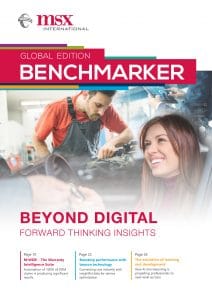
Beyond Digital.
Forward Thinking Insights

(R)evolution of Retail:
Outlook 2025
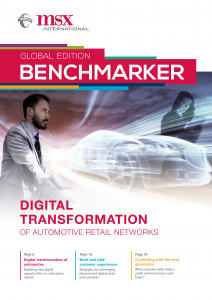
Digital
Transformation


